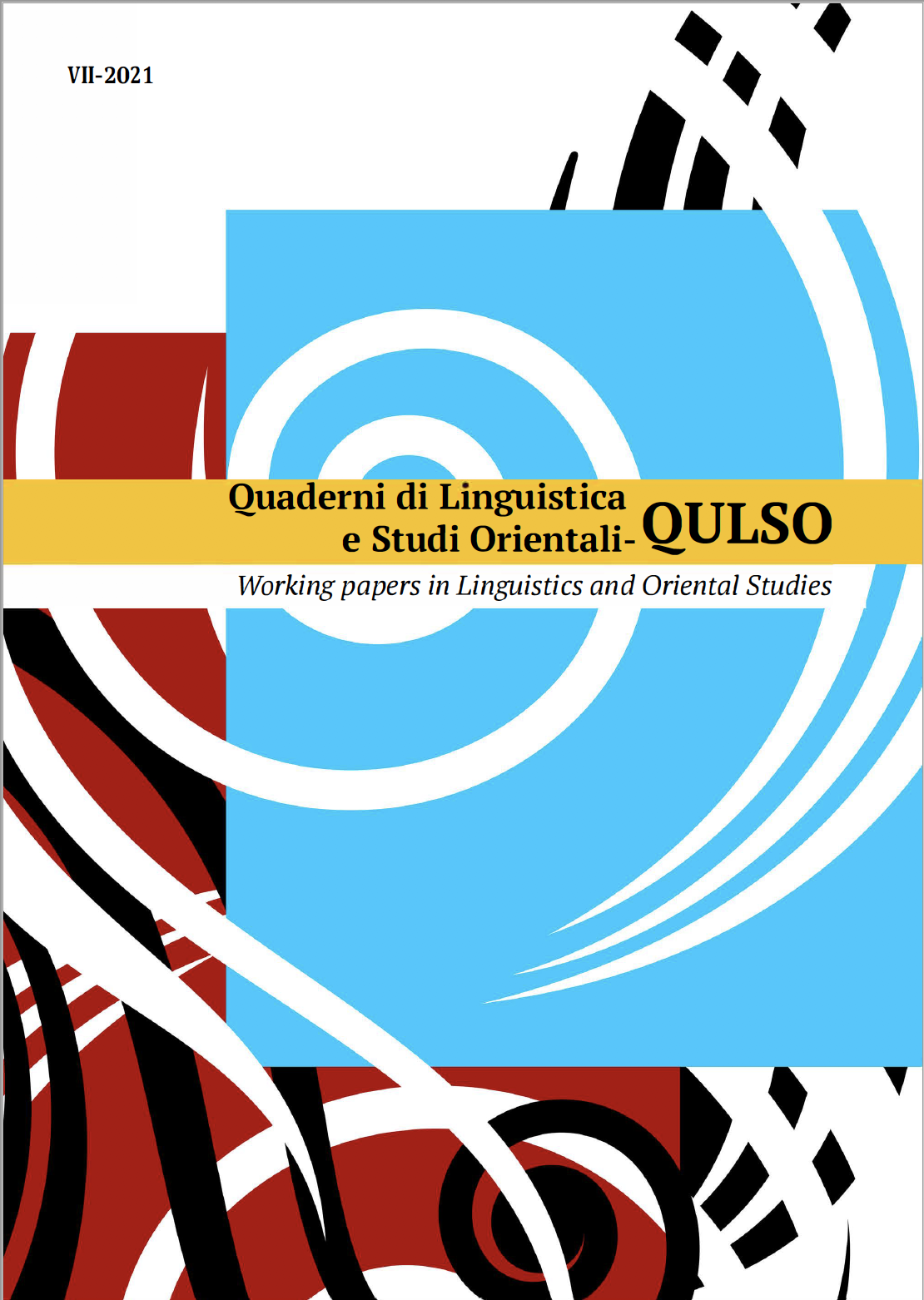Published 2021-09-15
Keywords
- Accessibility,
- Bilingualism,
- Over-Explicitness,
- Subject Anaphoric Devices
How to Cite
Abstract
In this work we propose an explanation (the Decreased Activation Hypothesis) for some prima facie conflicting findings concerning the choice/interpretation of subject anaphoric devices in late bilinguals (LBs). While some studies report an overuse of overt pronouns (often claimed to be a default form employed by LBs), other studies report an overuse of lexical DPs (interpreted as a sign of LBs’ over-explicitness). Our proposal is that over-explicitness in bilinguals is just outward and the use of seemingly over-explicit forms (overt pronouns or lexical DPs) stems from LBs difficulty to cope with referents’ activation. Then, starting from the observation that whenever overuse of overt pronouns is reported a null subject language is at least involved, and whenever overuse of lexical DPs is reported a non-null subject language is at least involved, we explore the way in which subject anaphoric devices are employed in (some) null subject languages and in (some) non-null subject languages, finally arguing that LBs of a null and a non-null subject language may choose to be seemingly overexplicit in two different ways.



